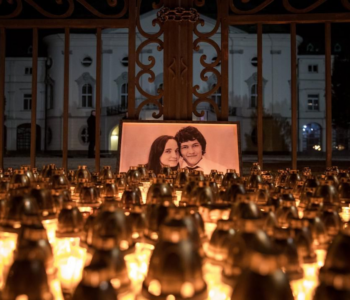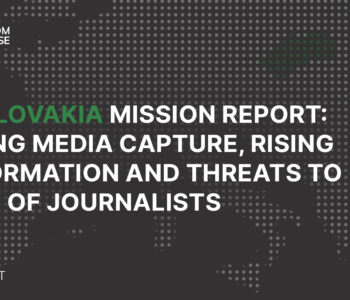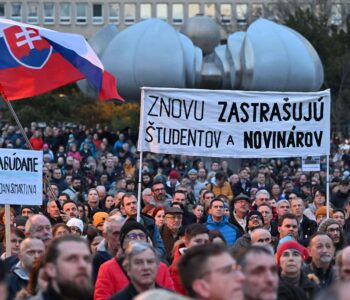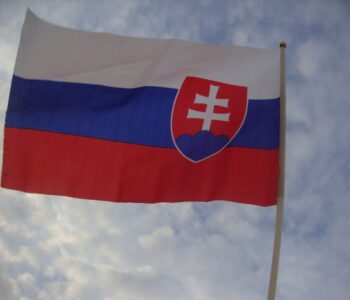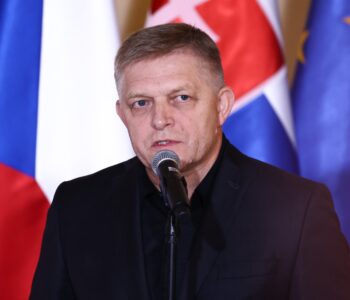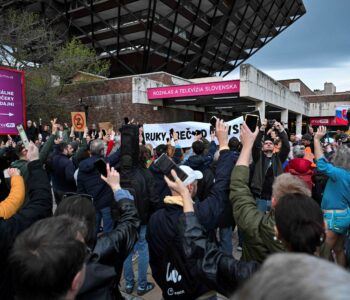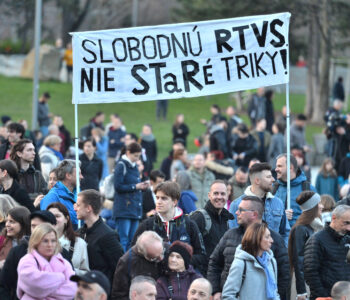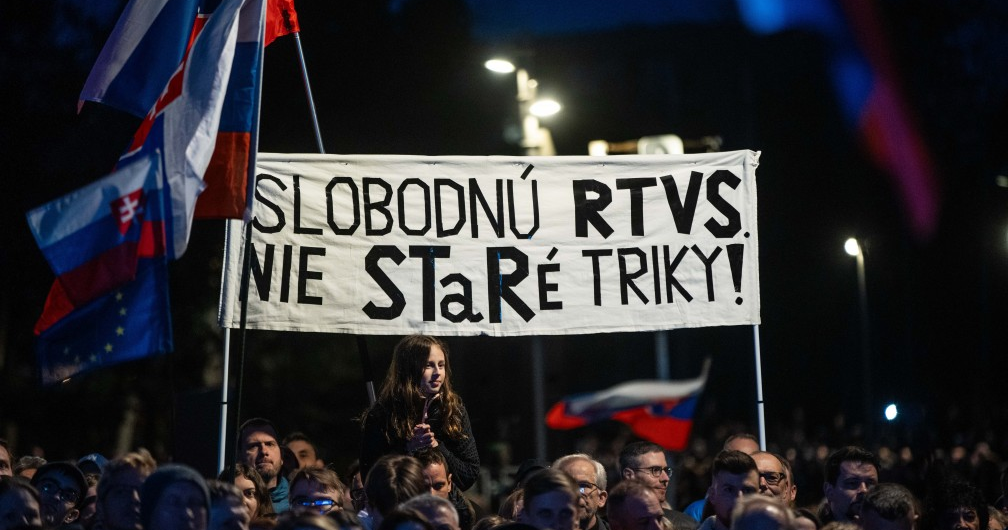 Library
Library
Slovakia: Media capture deepens as government tightens grip on…
Slovakia: Media capture deepens as government tightens grip on public and private media
27.06.2025
IPI’s global network today raises alarm over Slovakia’s ongoing and steady decline in media freedom. In recent months, the Slovak government has tightened its grip on the media by intensifying its control over the public broadcaster STVR and enacting the restrictive so-called “anti-NGO” law. Slovakia’s leading commercial broadcaster, TV Markíza, has also come under political influence following the departure of its union leaders.
IPI urges the Slovak government to end its undemocratic pressure on independent journalism and to respect the independence of the public broadcaster. Furthermore, we call on the European Union to closely monitor developments on press freedom in Slovakia, and to respond robustly to further threats to free and independent journalism in both public and private media.
In early May, a 7–2 majority of the current public broadcaster STVR’s oversight Council elected Martina Flašíková, the daughter of a political strategist for the ruling Smer party and a close government ally, as director general in a closed-door vote. Journalists and members of the public were excluded from the election process, despite constitutional guarantees of public access to such hearings.
The government’s campaign to take control over public service media began with a 30% budget cut to Radio and Television Slovakia (RTVS) imposed by Parliament at the start of 2024. The Ministry of Culture then pushed through a new media law,which replaced the public broadcaster Radio and Television of Slovakia (RTVS) with a new entity, Slovak Television and Radio (STVR). The bill, approved by the President in June 2024, represented a clear attempt to restrict the editorial independence of the broadcasters.
Under the law, the former public broadcaster RTVS saw its Director General, Luboš Machaj, who was elected by Parliament to serve until 2027, replaced by an interim director nominated by the Speaker of Parliament based on an agreement of the ruling coalition. The RTVS Board was immediately disbanded.
IPI warns that Flašíková’s appointment, which lacked transparency, represents a clear step by the ruling coalition to install a political ally to the management of the country’s public broadcaster, with the aim of exerting greater control over editorial policy. This poses a major threat to the independent functioning and professionalism of STVR moving forward, in clear violation of requirements set out under the upcoming European Media Freedom Act (EMFA).
In May 2025, Viktor Vincze, a well-known Slovak television presenter, announced that he would no longer be anchoring ‘Televízne noviny’, the evening news programme on TV Markíza — the most-watched news show in Slovakia, and was leaving Markiza.
Vincze told IPI that he was forced to resign after management removed him from his anchor role and asked him to move to a new digital channel for many more hours of work, but no more pay. This decision followed months of management pressure on him for his role leading the journalists union formed a year earlier to protect the editorial integrity of the newsroom. Vince said he was taking a case against TV Markiza for constructive dismissal.
TV Markiza has been under increasing pressure since the formation of the new government in September 2023. In November, Prime Minister Róbert Fico accused the TV station of being part of the “enemy media” and quickly threatened to cut contracts for state advertising in Markíza’s broadcasting.
A few weeks later, the station changed its director of news and introduced tighter editorial procedures for approving news content which led to significant newsroom protests in early 2024. Markiza journalists claimed that the independence of the newsroom was being curtailed and that political coverage was being stifled in order to appease the government.
With the departure of Vincze and other union members, concerns are growing that Markiza is abandoning its critical watchdog reporting on the ruling coalition.
Finally, Slovakia’s restrictive law requiring NGOs to prepare transparency reports and disclose information related to the management of public funds was passed in April and took effect on June 1. Under the law, non-profit organisations, foundations and associations with an annual income exceeding €35,000 are required to submit such a report.
The law, introduced amid growing hostility toward media and civil society from the government, poses a serious threat due to its restrictive nature, the unnecessary administrative burden it places on NGOs and independent media which operate with an NGO status, and the potential for more repressive amendments in the future.
Though the final text of the bill was watered down in the final legislative phase under pressure from the EU, IPI reiterates its condemnation of the law and calls for its repeal.
The steady erosion of media freedom, alongside the dismantling of democratic freedoms in Slovakia, cannot be ignored. We urge the European Union to ensure the steady erosion of media freedom in Slovakia by the Fico government does not go under the radar, to directly criticise and address the democratic backsliding, and to use all measures to defend journalists’ rights and media freedom. The EU’s response will be pivotal in preserving media pluralism and reversing media capture in the country.
Slovakia is facing not only the effective capture of the public broadcaster but also mounting pressure on private media, in particular, one of the country’s most important news providers, TV Markiza.
This statement by IPI is part of the Media Freedom Rapid Response (MFRR), a Europe-wide mechanism which tracks, monitors and responds to violations of press and media freedom in EU Member States and Candidate Countries.

